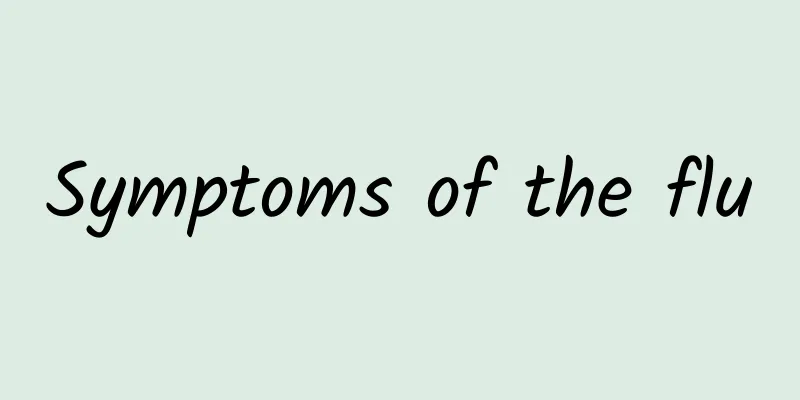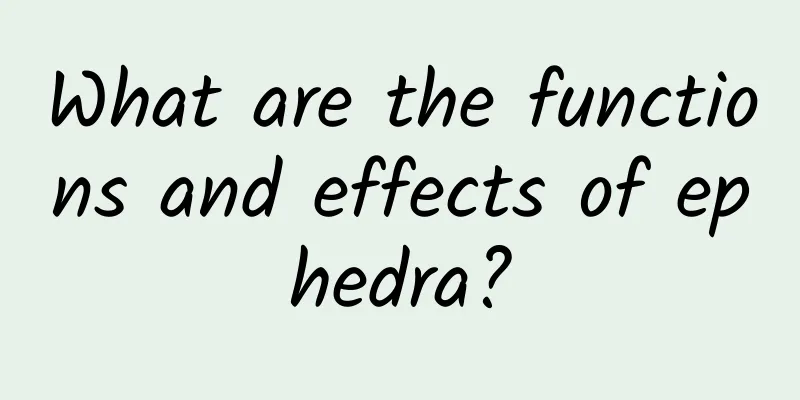What are the symptoms and treatments of cerebral infarction?

|
Cerebral infarction is a disease that develops rapidly and has a very high mortality rate. In life, after people are diagnosed with cerebral infarction, they should also understand its symptoms and treatment methods in advance. Clinical manifestations of cerebral infarction: 1. Main clinical symptoms The clinical symptoms of cerebral infarction are complex, which are related to the site of brain damage, the size of ischemic blood vessels, the severity of ischemia, the presence or absence of other diseases before the onset of the disease, and the presence or absence of other important organ diseases. In mild cases, there may be no symptoms at all, that is, asymptomatic cerebral infarction; it may also manifest as recurrent limb paralysis or dizziness, that is, transient ischemic attack; in severe cases, there may not only be limb paralysis, but even acute coma and death. If the lesion affects the cerebral cortex, it may manifest as epileptic seizures in the acute stage of cerebrovascular disease, with the highest incidence within 1 day after the onset of the disease. Cerebrovascular disease with epilepsy as the first onset is rare. Common symptoms include: (1) Subjective symptoms include headache, dizziness, vertigo, nausea, vomiting, motor and/or sensory aphasia, and even coma. (2) Cranial nerve symptoms include staring toward the side of the lesion, central facial paralysis and tongue paralysis, and pseudobulbar palsy, such as choking on water and difficulty swallowing. (3) Physical symptoms include hemiplegia or mild hemiplegia, hemisesthesia, unsteady gait, limb weakness, incontinence, etc. 2. Clinical classification of cerebral infarction site (1) Lacunar infarction: The infarct area of cerebral infarction is less than 1.5 mm, and the symptoms are: subacute onset, dizziness, unsteady gait, limb weakness, and a few patients have choking and coughing when drinking water and difficulty swallowing; there may also be hemiplegia and hemisensory loss, and some patients have no localizing signs. (2) Medium-sized infarctions are most common in the basal ganglia, thalamus, bilateral frontal lobes, and temporal lobes. Symptoms include: sudden headache, dizziness, frequent nausea, vomiting, clear consciousness, hemiplegia or hemisensory disorder, hemianopsia, central facial paralysis and tongue paralysis, pseudobulbar paralysis, aphasia, etc. (3) Patients with large-area infarction have an acute onset and present in critical condition, with symptoms such as hemianopsia, hemiplegia, hemisensory loss, or even quadriplegia, cerebral hernia, and coma. Treatment of cerebral infarction: 1. General treatment in the acute phase The principle of treatment is to improve blood circulation in the ischemic area of the brain as soon as possible and promote recovery of neurological function. During the acute phase, patients should rest in bed as much as possible, strengthen care of the skin, oral cavity, respiratory tract, and urination and defecation, and pay attention to the balance of water and electrolytes. If the patient is still unable to eat on his own 48 to 72 hours after onset, he should be given nasogastric liquid diet to ensure nutritional supply. The patient's daily care, diet, and treatment of other complications should be given priority. Since some patients with cerebral infarction cannot take care of themselves in the acute phase and even have difficulty swallowing, if they are not given proper nutrition, energy metabolism problems will quickly arise. At this time, even if the treatment medication is good, it is difficult to achieve good treatment results. 2. Treatment of cerebral edema (1) Mannitol is commonly used in clinical practice in the form of 20% mannitol hypertonic solution. Mannitol is one of the most commonly used and effective dehydrating agents. (2) 10% glycerol fructose can produce pharmacological effects through hypertonic dehydration. It can also utilize the energy generated by glycerol metabolism into the brain metabolism process, thereby improving local metabolism. Through the above effects, it can reduce intracranial pressure and intraocular pressure, eliminate cerebral edema, increase cerebral blood volume and cerebral oxygen consumption, and improve brain metabolism. (3) Diuretic dehydration agents such as furosemide (Lasix) and sodium urate can be injected intermittently intramuscularly or intravenously. (4) Adrenal cortical hormones are mainly glucocorticoids such as hydrocortisone and cortisone. Their secretion and production are regulated by corticotropin. They have anti-inflammatory, immunosuppressive and anti-shock effects, but are generally not used routinely. (5) Human albumin (albumin) Human albumin is a medium molecular weight colloid that plays an important role in generating colloid osmotic pressure, which helps retain fluid in the vascular cavity. It is generally not used routinely. |
<<: Polio can be treated in four ways
>>: How to regulate poor ovarian function in women
Recommend
What should not be eaten when having herpes
The disease of herpes often occurs in our lives. ...
What is protein loss disease?
It is well known that in order to maintain health...
Can femoral head necrosis be inherited?
In the early stages of bone necrosis, there may b...
What should I do if my face is swollen the next day after having my wisdom teeth removed?
Wisdom teeth are a very important part of the hum...
What causes the symptoms of Meniere's syndrome?
Meniere's syndrome is a sudden disease. Patie...
Astragalus and Cynomorium Soaked in Water
Astragalus and Cynomorium songaricum are both com...
Can vinegar cure leukoplakia?
Vinegar is a common condiment and an essential co...
Is swimming good for your heart?
Swimming is a very suitable sport for the human b...
What are the recipes for tangerine fruit-preserving medicine?
Satsuma mandarin is a common fruit with good tast...
What are the benefits of purple butterfly flower
Purple pansy is a common flower in our lives. Bec...
The best way to treat tinea cruris
Most of us must have had similar experiences: som...
Chin hook pain
I wonder if many of my friends suffer from chin p...
What are the symptoms of vestibular dysfunction?
Vestibular function plays an important role in th...
How to induce menstruation immediately
Menstruation is not only a good friend of women, ...
What are the symptoms and manifestations of obsessive-compulsive disorder?
Obsessive-compulsive disorder is also a disease t...









